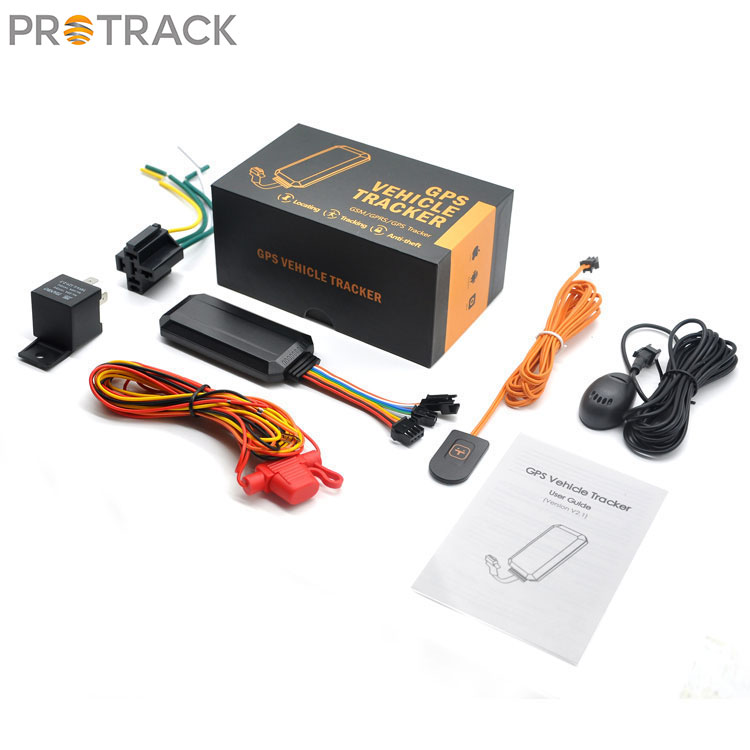GPS Trackers: Enhancing Safety, Security, and Efficiency in a Connected World
2025-04-24
GPS trackers have become an essential tool for both personal and business use, providing accurate location data in real-time. Whether for tracking vehicles, pets, or valuable assets, GPS trackers use satellite signals to pinpoint their exact location, offering peace of mind and security to users. The technology behind GPS trackers has advanced significantly over the years, with new features and improvements making them more versatile and reliable than ever before.
At the core of GPS tracking technology is the Global Positioning System, which consists of a network of satellites orbiting the Earth. These satellites send signals to GPS receivers, which then calculate their location based on the time it takes for the signals to reach them. The GPS tracker collects this data and sends it to a centralized platform, where it can be viewed by the user through a mobile app or web interface.
One of the most common uses of GPS trackers is for vehicle tracking. Fleet management companies rely heavily on GPS trackers to monitor the location and movement of their vehicles. This allows them to optimize routes, ensure timely deliveries, and reduce fuel costs. In addition, GPS tracking can help prevent theft by providing real-time location data in case a vehicle is stolen. This has proven to be an invaluable tool for businesses looking to increase efficiency and protect their assets.
GPS trackers are also used in personal safety applications. For example, parents often use GPS trackers to monitor the whereabouts of their children, providing peace of mind in knowing they are safe and within a certain radius. Similarly, pet owners use GPS trackers to keep track of their pets, particularly if they are prone to wandering. With the ability to set geofences or boundaries, users can receive alerts when their tracked items, whether a child or a pet, leave a designated area.
The technology has also made its way into the world of outdoor activities, with hikers, campers, and adventurers using portable GPS trackers to navigate remote areas. These trackers provide vital information about a person's location, even in areas where there is no mobile network coverage. In case of an emergency, some GPS trackers are equipped with SOS features that allow users to send distress signals to emergency services, improving safety during outdoor excursions.
Another emerging application for GPS trackers is asset tracking. Businesses use GPS trackers to monitor valuable equipment, ensuring that tools, machinery, or electronics are not lost or stolen. This is particularly useful for industries such as construction, where expensive equipment is often moved between job sites. GPS trackers provide real-time insights into the location and movement of assets, helping businesses manage their inventory and reduce the risk of loss.
In addition to their practical applications, GPS trackers have become increasingly affordable, making them accessible to a wider range of users. From basic models designed for simple tracking needs to more sophisticated options with features like live streaming, geofencing, and low-battery alerts, there is a GPS tracker for virtually every need. Many trackers are also small and discreet, making them easy to conceal or carry without being noticed.
GPS tracking systems also offer a high level of accuracy, with modern trackers providing location data within a few meters. This precision is crucial for industries like logistics, where exact location data can improve the overall efficiency of operations. Moreover, some advanced GPS trackers can integrate with other technologies, such as IoT devices, to provide additional functionality, such as monitoring temperature, humidity, or engine diagnostics for vehicles.
With the growth of the Internet of Things (IoT), GPS trackers have evolved to become part of a larger network of connected devices. Many GPS trackers can now be linked to smartphones, smartwatches, and other IoT systems, allowing users to receive notifications and updates on the go. This connectivity makes GPS trackers even more versatile, offering a seamless experience for users who want to stay connected to their assets, vehicles, or loved ones at all times.
The rise of GPS tracking has undoubtedly transformed the way people approach safety, security, and logistics. Whether used for personal safety, fleet management, or asset tracking, GPS trackers offer invaluable insights that help users stay informed and make better decisions. With continuous advancements in technology, GPS trackers are expected to become even more reliable, accurate, and user-friendly in the future. As they continue to evolve, they will remain a vital tool for improving the way people manage their assets, navigate the world, and stay connected.



